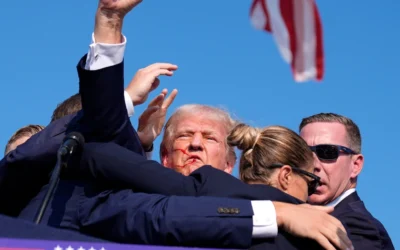Breaking Barriers, Empowering Voices: Ghana’s Quest for Gender Equality in Party Primaries

Ghana’s political scene has embarked on an inspiring journey toward gender equality, with a particular focus on party primaries. In our exploration of Ghanaian politics, we witness both the challenges and remarkable progress in promoting women’s representation in party primaries. Furthermore, we examine courageous women, inclusive strategies, and the pivotal role of women’s organizations in empowering female voices.
Bridging the Gender Gap in Political Party Membership:
In Ghana, women constitute a significant portion of the population, yet they have traditionally faced underrepresentation in political party membership. Historically, women in Ghana have been underrepresented in political party membership. This trend is evident across Ghana’s First Republic (1957-1966), military rule (1966-1992), and the transition to multi-party democracy (1992 onwards). In each period, women faced challenges and limited political opportunities, resulting in a significant gender disparity within political parties. Although progress has been made over time, the issue of women’s underrepresentation in Ghanaian politics remains a persistent concern.
Opening Doors with Affirmative Action and Gender Quotas
Recognizing the urgent need for change, Ghana has implemented gender quotas, levelling the political playing field for women in party primaries. Government institutions, like the Ministry of Gender, Children, and Social Protection and the Electoral Commission, must enforce and promote these policies. Additionally, women’s rights organizations and advocacy groups in Ghana play a crucial role in pushing for and supporting these initiatives. These policies ensure equitable party nominations for female candidates, enhancing their opportunities to compete for candidacies.
Empowering Women to Step Forward in Party Primaries
Female candidates face a myriad of challenges when participating in party primaries. Social and cultural norms, limited resources, and the predominance of male party members create barriers for women. However, inspiring stories have emerged, where women have defied expectations and contested party primaries, showcasing their leadership capabilities. Examples include Hanna Tetteh, who became the first woman to win a parliamentary seat in her constituency, Ursula Owusu-Ekuful, a prominent politician advocating for digital inclusion, and Samira Bawumia, who contested parliamentary primaries. These women’s successes serve as inspiration for aspiring female politicians and contribute to breaking down gender barriers in Ghanaian politics.
Overcoming Hurdles: Challenges Faced by Women Candidates
Female candidates encounter a range of obstacles throughout the primary election process. They often face resistance and doubt from within their own parties, making their journey even more arduous. Moreover, gender biases, financial constraints, and a lack of visibility pose significant challenges for women seeking party nominations.
Forging Paths Towards Equality: Strategies to Promote Women’s Inclusion
Political parties and civil society organizations have implemented various strategies to foster gender equality in party primaries. These include targeted training programs, mentorship initiatives, and awareness campaigns aimed at challenging gender stereotypes. Moreover, efforts are being made to create an environment within parties that supports and uplifts women in politics.
Shining Examples: Celebrating Successful Women Candidates
Ghana has witnessed inspiring success stories of women who have triumphed in party primaries, defying all odds. These trailblazing women have demonstrated their competence and dedication to public service, becoming beacons of hope for aspiring female politicians. Their accomplishments inspire more women to actively engage in party politics and contribute to meaningful change. Adwoa Safo, Ursula Owusu-Ekuful, Hanna Tetteh, Sarah Adwoa Safo, and Dela Sowah are driving gender equality in Ghanaian politics through transformative women’s leadership. These remarkable women have defied expectations in Ghanaian party primaries, breaking barriers and inspiring others with their victories

Uniting Forces: The Impact of Women’s Organizations
Women’s organizations and advocacy groups have played a pivotal role in encouraging and empowering female participation in party primaries.
Women’s organizations in Ghana, such as WIPSU, National Women’s Organizer Network, and Gender Centre, empower and support female participation in party primaries. They offer training, mentorship, and resources, advocating for gender equality within parties. NDI Ghana, WiLDAF Ghana, and Women’s Manifesto Coalition also provide support and networking opportunities. These efforts foster a more inclusive political landscape in Ghana.
By providing networking opportunities, capacity-building programs, and a united front, these organizations have amplified the voices of women in the political arena. Their dedication has sparked a shift in societal attitudes, creating a more supportive environment for women in politics.
Ghana’s journey toward gender equality in party primaries is one of resilience and determination. While challenges persist, the progress made in empowering women is undeniable. By dismantling biases, ensuring equitable access, and transforming perceptions, Ghana paves the way for an inclusive political landscape. As Ghana progresses, women will play a pivotal role in shaping governance, creating a more inclusive society.
http://windearconsulting.com/political-leadership-in-ghana-challenges-and-prospects/


